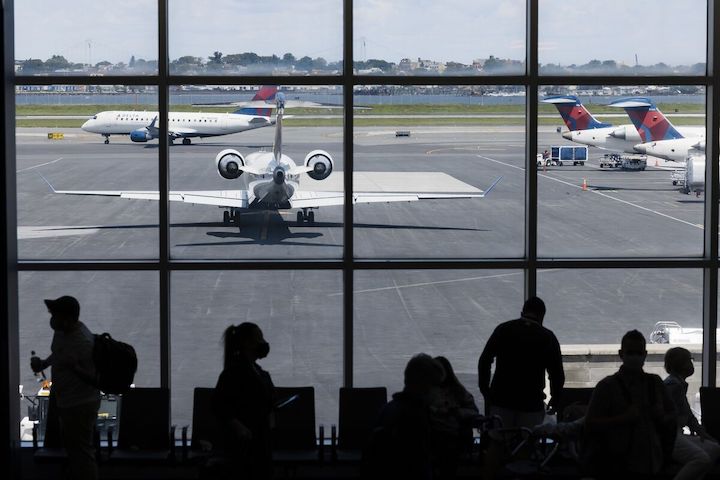US carriers seek to extend NYC flight limits on delay concerns
US airlines are seeking another year of voluntary flight reductions at some of the nation’s most congested airports as the industry struggles with an ongoing shortage of air traffic controllers.
If the request is granted by federal aviation regulators, airlines could reduce flights at all three major New York City-area airports as well as Ronald Reagan Washington National until October 2025 without risk of losing their valuable airport flight slots. Currently, the program is scheduled to expire this October.
Airlines for America, the trade group for major carriers, made the request in a letter to the US Transportation Department and the Federal Aviation Administration.

The flight reductions, first put in place in May 2023, followed a dramatic upswing in delays and cancellations as traffic surged back after the pandemic at the same time the US was hit by a wave of controller retirements. Air traffic in the northeastern US is particularly critical because disruptions there can easily cause a domino effect across the entire US airspace.
“We still have a shortage of air traffic controllers, so it’s still an incredibly challenging environment,” Peter Carter, Delta Air Lines Inc.’s executive vice president of external affairs, said on a conference call Wednesday. “Absent the waivers, I think we’d have some real challenges as an industry in New York.”
Delta, American Airlines Group Inc., United Airlines Holdings Inc. and JetBlue Airways Corp. are among carriers affected by the decision.
While some progress was made in increasing the FAA workforce last year, current and future staffing levels are “neither adequate to give consumers the travel experience they deserve, nor are they able to maximize the efficiency of the New York City airspace,” A4A, as the group is known, said in the letter. “Inadequate staffing will remain an immediate critical impediment” for the area during the 2024 winter season and 2025 summer season, the trade group said.
The flight limits helped improve on-time arrivals and departures at the participating airports in the fourth quarter, A4A said, as well as the percentage of flights completed.
Carriers have in some cases maintained capacity despite operating a lower volume of flights by using larger planes. As part of the plan, the FAA has been waiving the requirement for carriers to use the flight slots or lose them.
Similar Stories

ECS Group partners with CargoAi to digitalize manual email quotation processes with their CargoCoPilot API
View Article
Chapman Freeborn restructure to expand European cargo operations
View Article
United Airlines fourth quarter profit ahead of expectations
View Article
WorldACD Weekly Air Cargo Trends (week 2) - 2025
View Article
Cathay Pacific releases traffic figures for December 2024
View ArticleXeneta announces Board of Director changes, supporting the transformation of ocean and air freight markets
Xeneta, the global reference for ocean and air freight rate data and intelligence, has announced changes to its Board of Directors. Marie-Pierre Rogers has been appointed as the new Chair,…
View ArticleGet the most up-to-date trending news!
SubscribeIndustry updates and weekly newsletter direct to your inbox!





